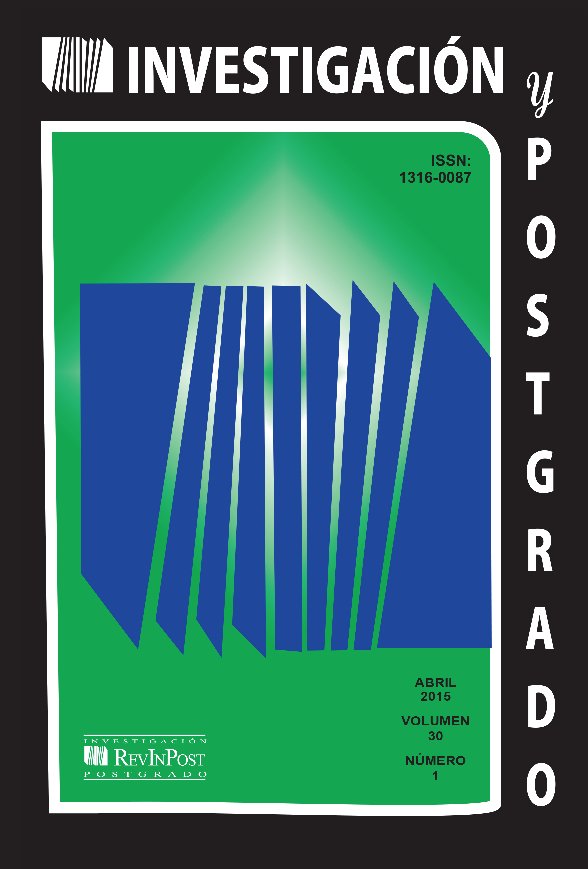ANÁLISIS DE LA INCLUSIÓN EDUCATIVA DESDE LA PERSPECTIVA DEL PROFESORADO DE EDUCACIÓN INFANTIL, PRIMARIA, SECUNDARIA Y BACHILLERATO EN EL CONTEXTO EDUCATIVO ESPAÑOL
Palabras clave:
inclusión educativa, formación del profesorado, investigación educativaResumen
Este trabajo se inscribe en una investigación sobre la inclusión escolar y sus implicaciones para la educación. El objetivo principal es conocer las opiniones del profesorado sobre la educación inclusiva y sus necesidades formativas para determinar algunos indicadores de calidad que orienten la formación en clave de inclusión. La metodología es básicamente descriptiva, se apoya en la utilización de un instrumento estructurado, un cuestionario, cercano a un enfoque de investigación cuantitativo y una entrevista, más próximo a un enfoque cualitativo de investigación. El análisis de los datos, la discusión de los resultados y las conclusiones permiten realizar algunas propuestas educativas para orientar la formación del profesorado en clave de inclusión.
Descargas
Citas
Ainscow, M. (2012). Haciendo que las escuelas sean más inclusivas: lecciones a partir del análisis de la investigación internacional. Revista Educación Inclusiva, 5(1), 39-49.
Ainscow, M. y Sandill, A. (2010). Developing inclusive education systems: the role of organisational cultures and leadership. International Journal of Inclusive Education, 14(4), 401-416.
Ainscow, M., Dyson, A., Goldrick, S. y West, M. (2012). Making schools effective for all: rethinking the task. School Leardership & Management: Formerly School Organisation, 32(3), 197-213.
Arnáiz, P. (2012). Escuelas eficaces e inclusivas: cómo favorecer su desarrollo. Educatio Siglo XXI, 30(1), 25-44.
Ausin, V. y Lezcano, F. (2012). Creación de un “dossier” sobre inclusión educativa formado por los programas existentes en las comunidades autónomas a través de la técnica Delphi. Bordón, 64(3), 9-22.
Blecker, N.S. y Boakes, N.J. (2010). Creating a learning environment for all children: are teachers able and willing? International Journal of Inclusive Education, 14(5), 435-447.
Cambell, E. (2010). Knowing. Curriculum Inquiry, 40(5), 577-682.
Casanova, M.A. (2011). De la educación especial a la inclusión educativa. Estado de la cuestión y retos pendientes. CEE Participación Educativa, 18, 8-24.
Echeita, G. (2011). El proceso de inclusión educativa en España. ¡Quién bien te quiere te hará llorar! CEE Participación Educativa, 18, 117-128.
Echeita, G. y Domínguez, A.B. (2011). Educación inclusiva. Argumento, caminos y encrucijadas. Aula, 17, 23-35.
Escudero, J.M. y Martínez, B. (2011). Educación inclusiva y cambio escolar. Revista Iberoamericana en Educación, 55, 85-105.
González, F. (2011). Inclusión y atención al alumnado con necesidades educativas especiales en España. CEE Participación Educativa, 18, 60-78.
Horne, P.E. y Timmons, V. (2010). Making it work: teachers´ perspectives on inclusion. International Journal of Inclusive Education, 13(3), 273-286.
Laluvein, J. (2010). School inclusión and “community of practice”. International Journal of Inclusive Education, 14(1), 35-48.
Litosseliti, I. (2003). Using Focus Group in Research. London: Continuum.
López, J. (2012). Facilitadores de la inclusión. Revista de Educación inclusiva, 5(1), 175-188.
Magro, M., Fernández, M.E. y Ramírez, M.I. (2008). Repensando la práctica profesional en el contexto de la formación del docente en educación intercultural bilingüe. Investigación y Postgrado, 23(3), 127-154.
Moya, A. (2012). El profesorado de apoyo en los centros educativos. Nuevas funciones, nuevas contradicciones. Educatio Siglo XXI, 30(1), 71-88.
Ríos-Rojas, A. (2011). Beyond delinquent citizenship: inmigrant youth´s (re)vision of citizenship and belonging in a globalized world. Harvard Educational Review, 81(1), 64-94.
Rosselló, M.R. (2010). El reto de planificar para la diversidad en una escuela inclusiva. Revista Iberoamericana de Educación, 51(4), 1-10.
Ruijs, N.M., Van Der Veen, I. y Peetsma, T.T.D. (2010). Inclusive education and students without special educational needs. Educational Research, 52(4), 351-390.
Torres, J.A. (2012). Estructuras organizativas para una escuela inclusiva: promoviendo comunidades de aprendizaje. Educatio Siglo XXI, 30(1), 45-70.
Descargas
Publicado
Cómo citar
Número
Sección
Licencia
Derechos de autor 2015 Universidad Pedagógica Experimental Libertador

Esta obra está bajo una licencia internacional Creative Commons Atribución-NoComercial-CompartirIgual 4.0.
Investigación y Postgrado está bajo una licencia internacional Creative Commons Attribution-NonCommercial-ShareAlike 4.0 .
La política de acceso abierto y de licencias con “algunos derechos reservados” no niega la propiedad intelectual ni los derechos de los autores respecto a sus artículos, al contrario, los respeta. Es por ello que:
No se reservan los derechos de publicación de los artículos. Los autores podrán distribuir su artículo en cualquier otro medio, siempre y cuando sea sin fines de lucro. Debe informar al Editor de esta nueva publicación y debe dar el crédito a la revista Investigación y Postgrado.













